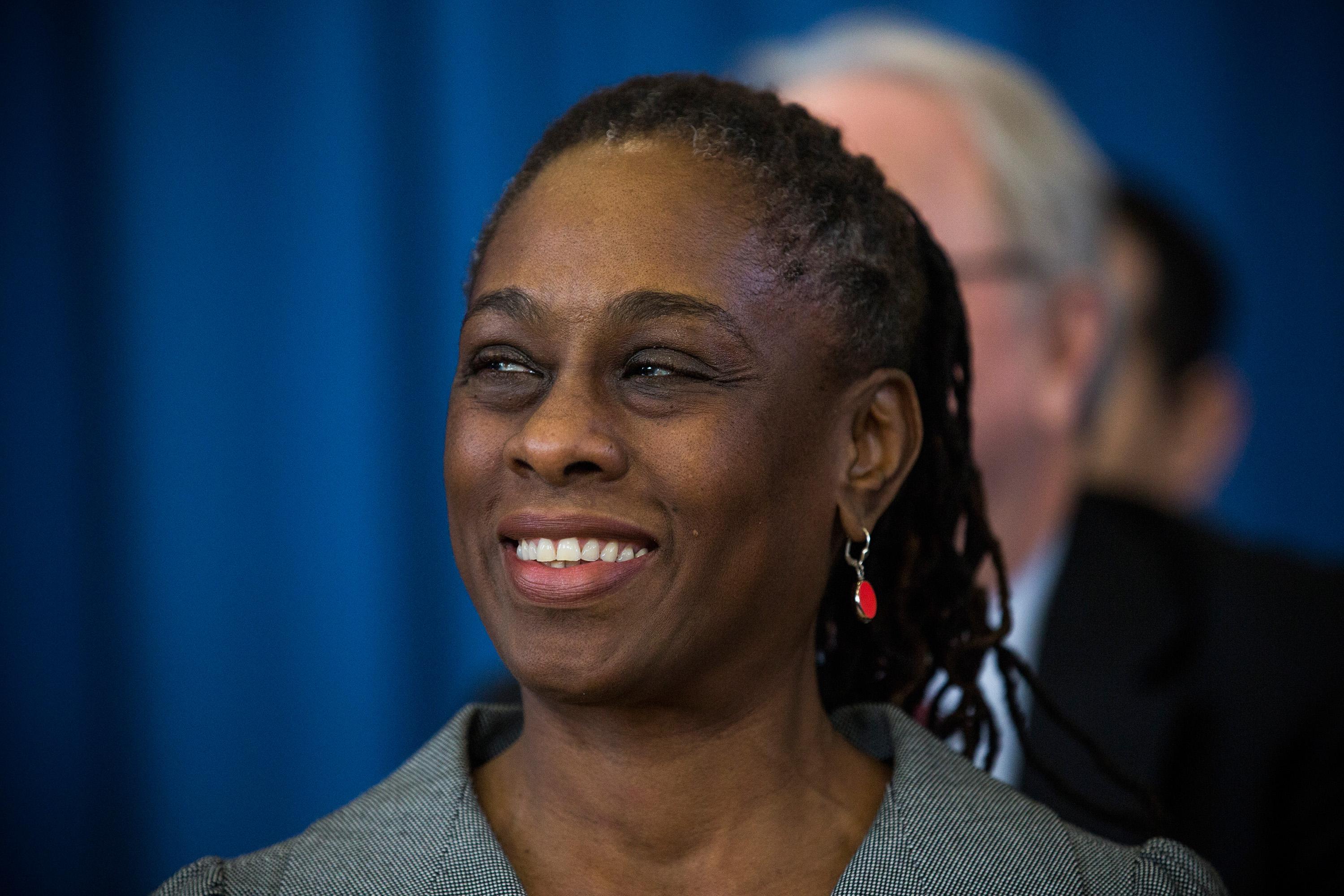New York magazine awarded this week’s cover slot to a long profile of New York City first lady (and object of public fascination) Chirlane McCray. Early on in the piece, writer Lisa Miller notes how significant it is that McCray’s status as a queer black woman has not been “politically devastating for an ambitious white politician” like Bill de Blasio, as it would have been just a few decades ago. In the 1970s, New York City Mayor Ed Koch was forced to constantly fend off inquiries about his sexual orientation; opposition posters read “Vote for Cuomo, Not the Homo.” In 2014, McCray’s unconventional biography has instead emerged as “an unambiguous asset” to her husband.
The de Blasio family—“black, white, gay, straight, Afroed and ear-gauged”—presents “a hologram of a liberal utopia” so flawless that Miller wonders if the family’s Benetton catalog vision is somehow the product of deft political maneuvering by McCray. Miller doesn’t exactly resolve that question, perhaps because the idea that McCray’s romantic relationship and its progeny are the result of such calculated engineering is absurd. The real significance of McCray, Miller’s story suggests, is that she has become such a popular first lady just by being herself—and in doing so, she’s emerged as a lesson for what the public really wants from a modern political wife.
Consider the popular perception of two other prominent American political wives. Michelle Obama’s “mom-in-chief” shtick—in 2012, she told the Democratic National Convention that this was her “most important title”—has grated on some because her emphasis on child-rearing and vegetable-picking reads as inconsistent with both her high-powered résumé and the feminist sensibilities of her husband’s politics. (Laura Bush did not catch similar flak for making child literacy a priority over more hot-button feminist issues, because she was a librarian and her husband was George W. Bush.) Meanwhile, Mitch McConnell’s wife, Elaine Chao—whose contributions to McConnell’s campaign were recently detailed in the New York Times—is a potential liability to McConnell because her pedigree is so political that it threatens to overpower McConnell’s own image. The Times described Chao as an “unapologetically ambitious operator with an expansive network, a short fuse, and a seemingly inexhaustible drive to get to the top and stay there.” This role is certainly consistent with Chao living her truth (she’s a lifelong striver who climbed to a position as Bush’s Labor secretary), but her truth isn’t the vision that McConnell needs as he battles the perception that he’s a Washington insider out of touch with his constituents.
McCray, meanwhile, seems to naturally fit perfectly into both the identity and the role expected of the first lady of New York City’s freshly progressive administration. “Unlike Michelle Obama or Hillary Clinton, she isn’t a careerist,” Miller notes. “Her résumé doesn’t sparkle.” So it doesn’t seem strange for McCray to be so satisfied in her new role as de Blasio’s No. 2, and it also doesn’t seem particularly threatening to the future of the city that she has some influence over her husband’s administration. (De Blasio has described McCray as his “partner” in all things; during his campaign, he put McCray’s name on the top of his org chart, side-by-side with his.) “Unlike other First Ladies, McCray isn’t known as a meddler,” Miller writes. “For all their closeness and commitment to one another, de Blasio is a much more traditional politician—deal-making, arm-twisting, glad-handing.” And importantly, McCray’s most significant contributions to the administration are simpatico with her identity: Miller reports that McCray pushed de Blasio to hire diverse staffers (he’s complied), and that she’s been tasked with revitalizing the city’s Commission on Women. That fits with McCray’s own story as a woman who, according to Miller, “came of age at a time and in a place when speaking out about who you are, making declarations of identity despite convention and in defiance of taboos, was the bravest thing a person—in particular, a black woman—could do.”
It certainly helps that the role of first lady of New York is not one that comes with particularly high expectations. Divorcee Michael Bloomberg didn’t bring a wife to City Hall; Rudy Giuliani traded a couple of them in and out; Ed Koch was a confirmed bachelor. But for other political wives around the U.S., McCray’s example provides a handy lesson: If you marry a politician, make sure it’s his career you want to support, not your own. “His career has been spent climbing the ladder of party politics,” Miller wrote of de Blasio. But “the ladder has never been McCray’s thing.”
And New York is also liberal and inclusive enough that a political wife doesn’t need to totally defang her opinions in order to succeed. Still, McCray is honest with Miller that something has been lost in the transition from radical activist to radical first lady. “It’s just kind of strange, like, What’s happened?” she asks Miller, positing that “tenure” and “people hooking up and getting married” has necessarily led her far-left peers to a more domestic existence.
